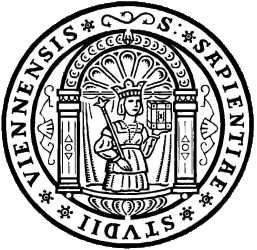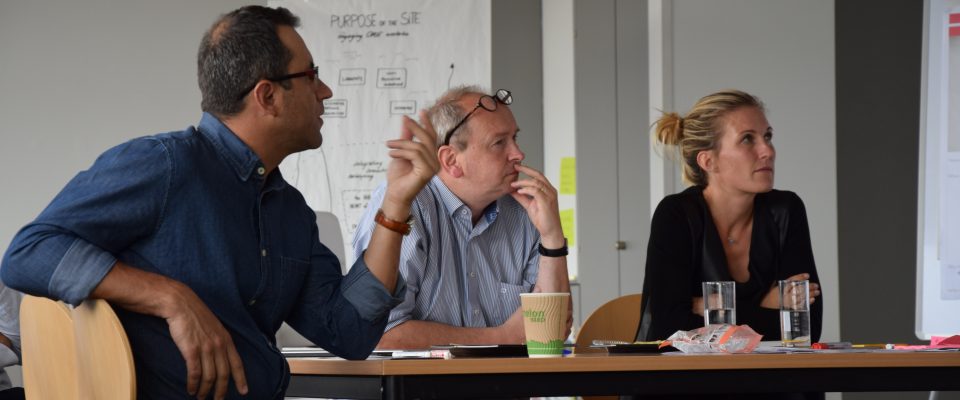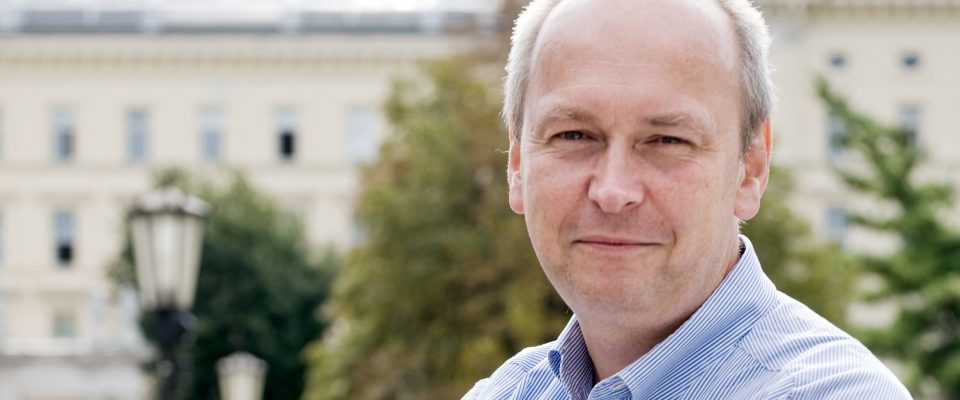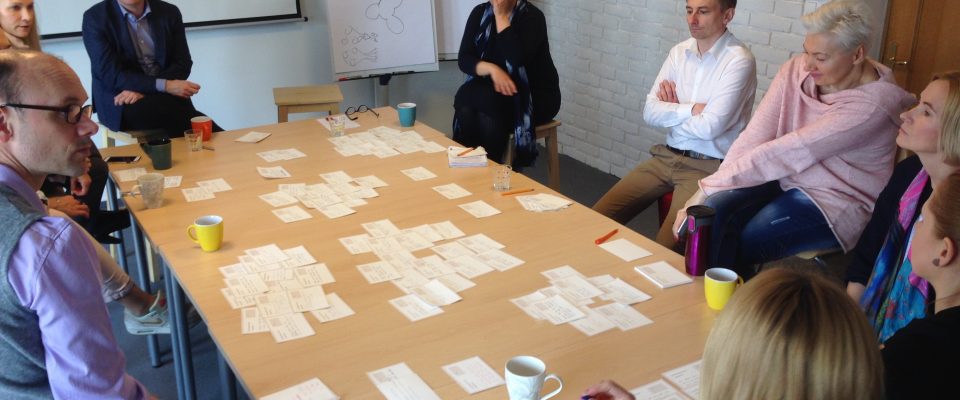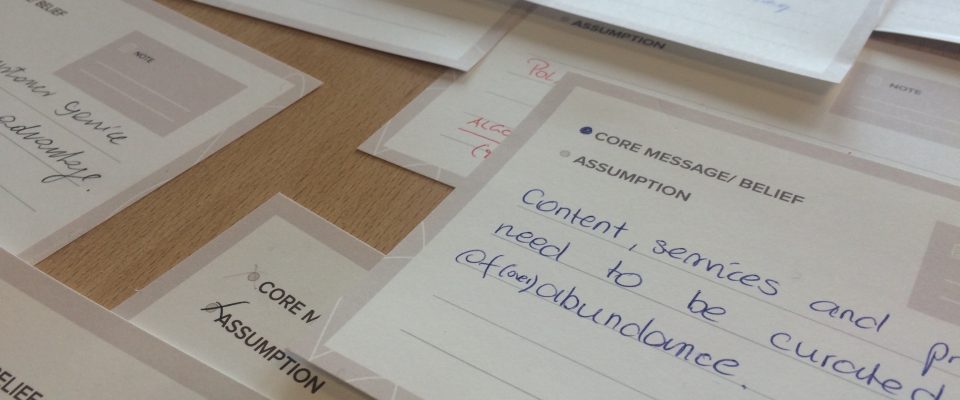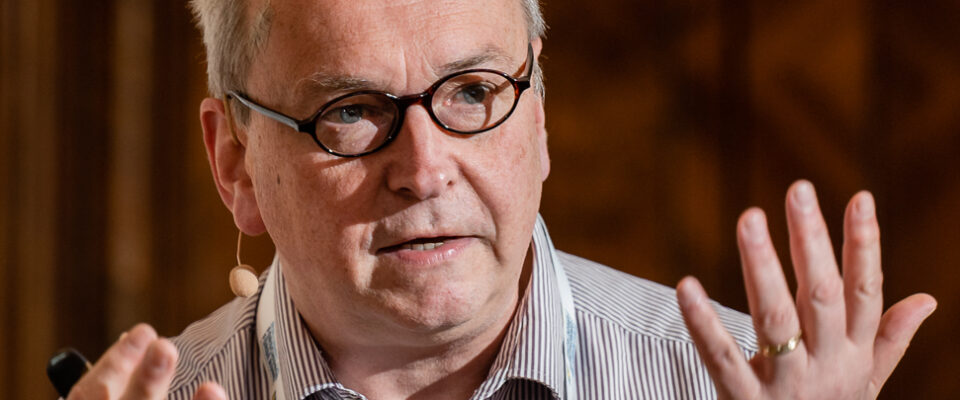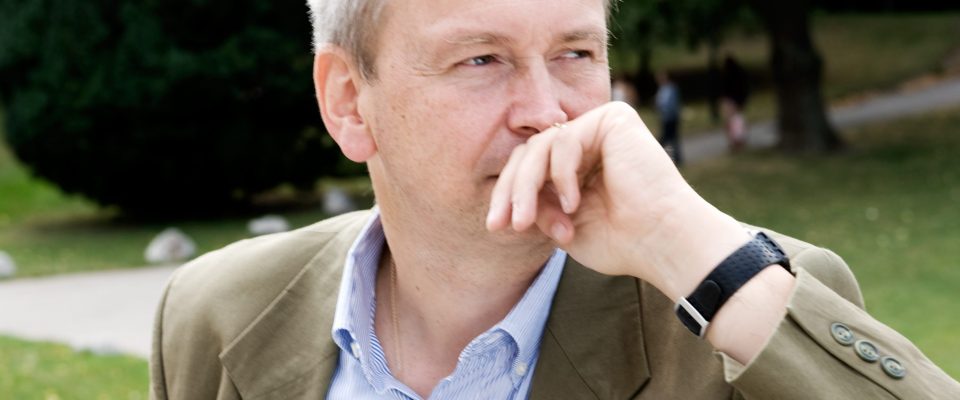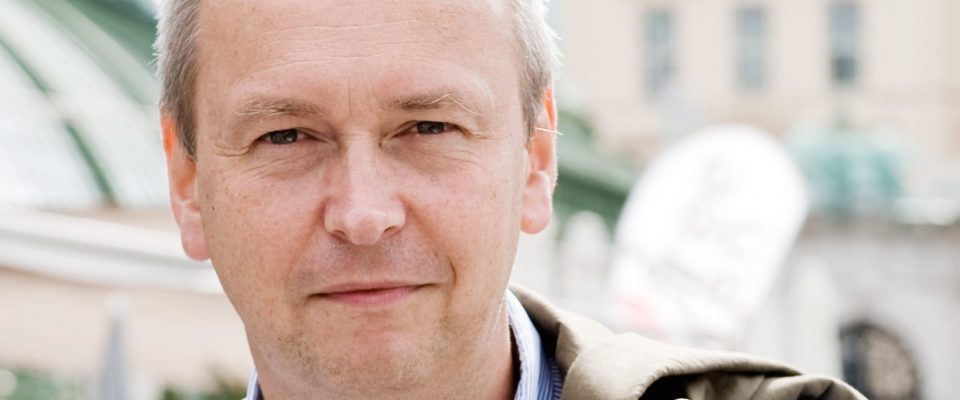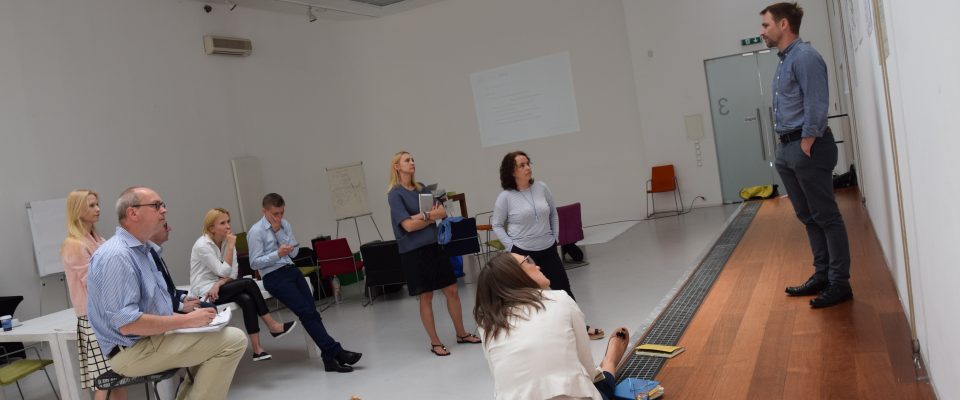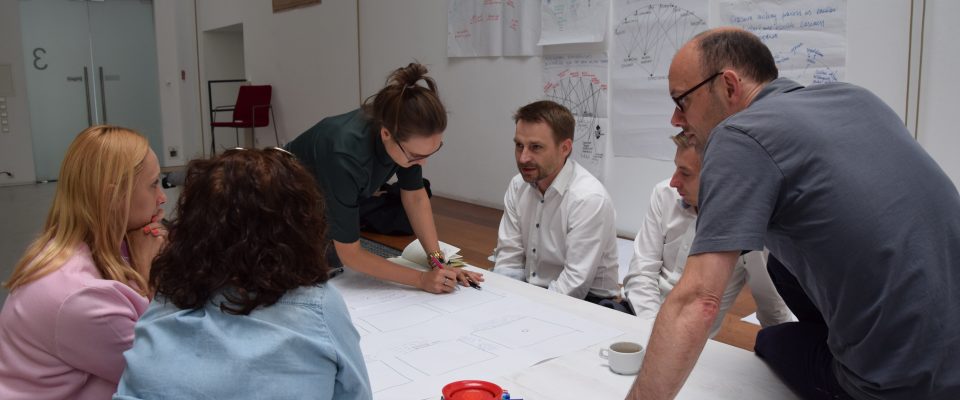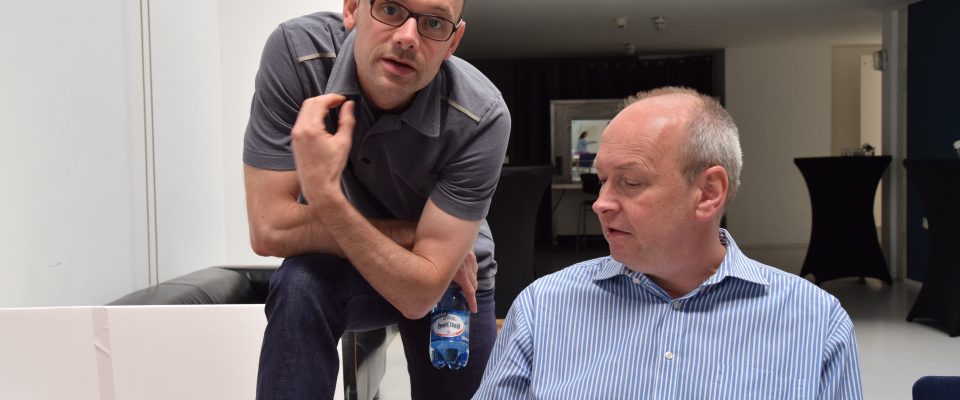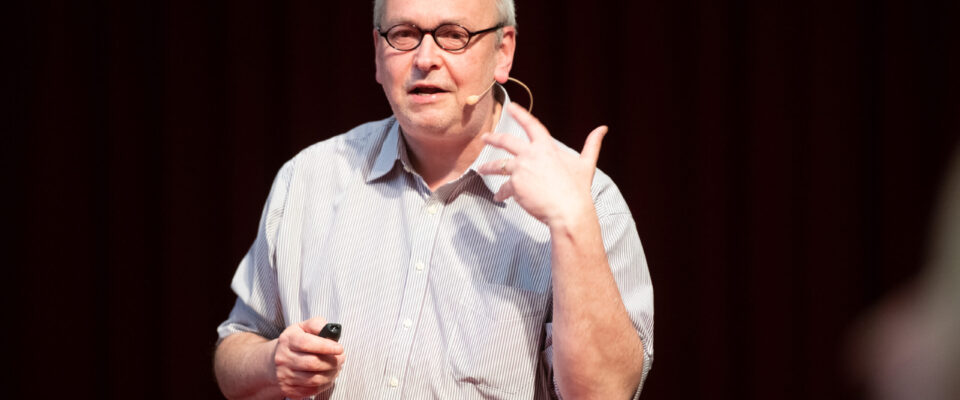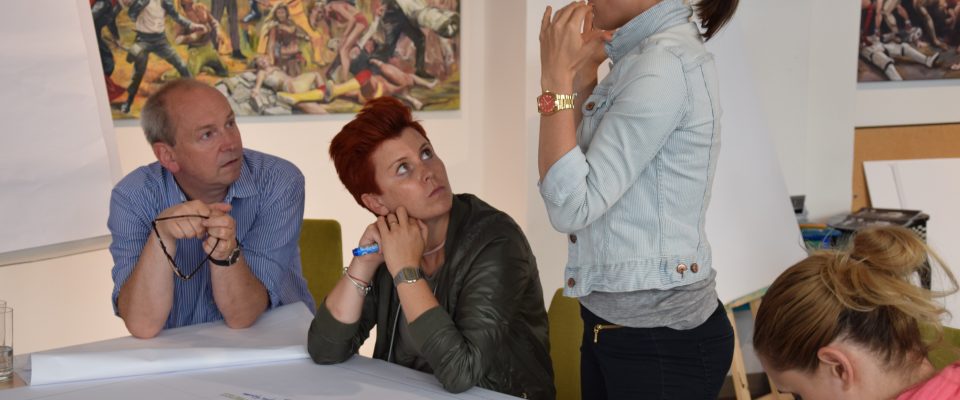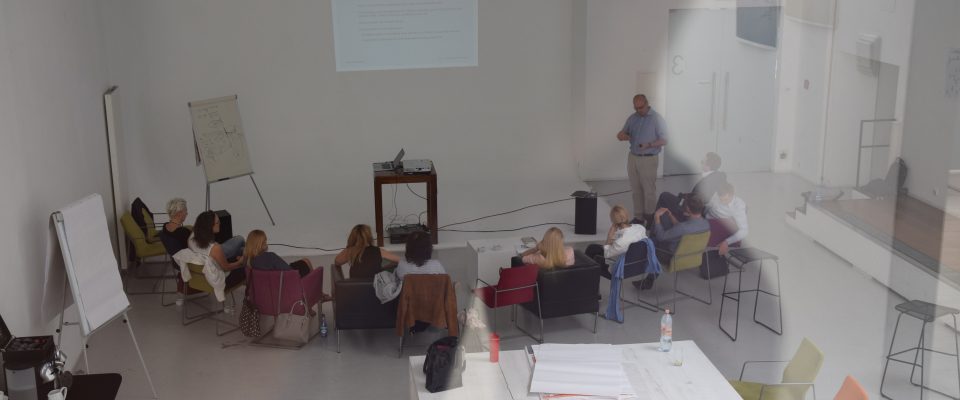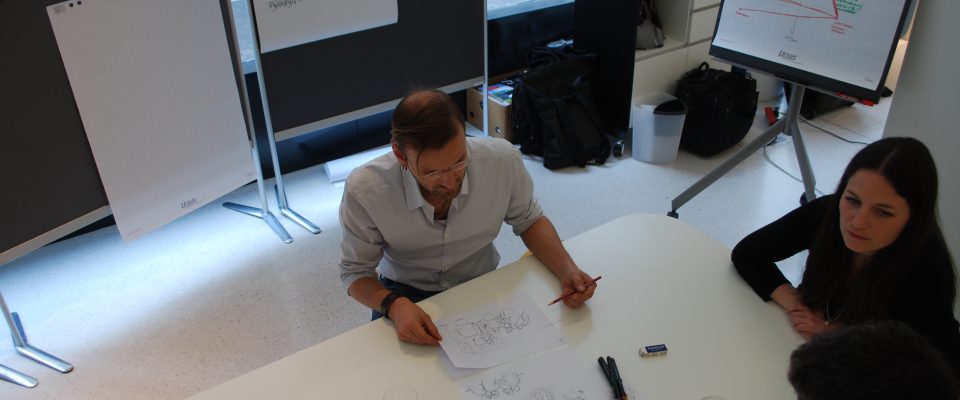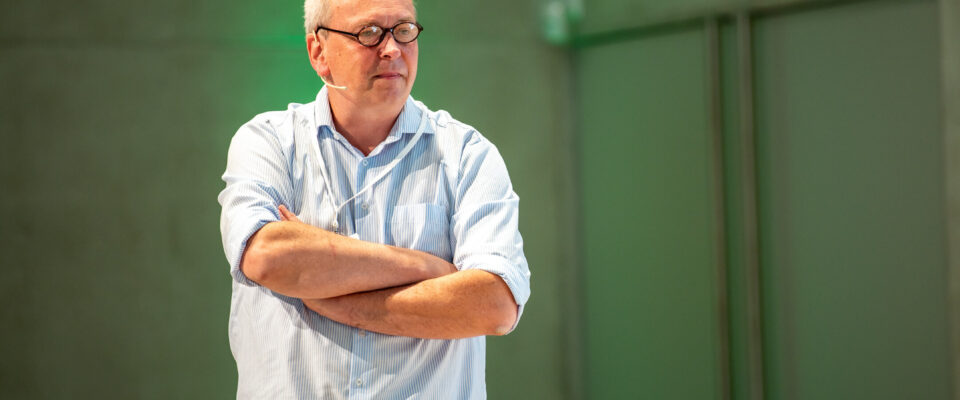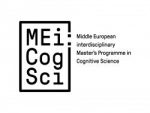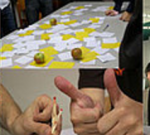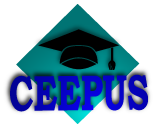Peschl, M. F. (2024). Human innovation and the creative agency of the world in the age of generative AI. Possibility Studies & Society, 2(1), pp. 49–76. https://doi.org/10.1177/27538699241238049
|
download |
| Zenk, L., Wetzel, R., & Peschl, M. F. (2024). Improvisation as a design for organizational emergence. In M. Pina E Cunha, D. Vera, A. Cunha Meneses Abrantes, & A. Miner, The Routledge Companion to Improvisation in Organizations, pp. 301–318. London: Routledge. | https://doi.org/10.4324/9781003171768-22 |
|
| Peschl, M.F. (2023). Learning from the future as a novel paradigm for integrating organizational learning and innovation. The Learning Organization 30(1), 6–22. | https://doi.org/10.1108/TLO-01-2021-0018 |
download |
| Peschl, M.F. and T. Fundneider (2023). Co-Becoming: How to Shape Desirable Futures in Highly Uncertain Times. On learning and the role of futures literacy in a VUCA world. In C. Kohlert (Ed.), Die menschliche (Hoch)schule – Human(e) Education, pp. 19–50. Wiesbaden: Springer. | https://doi.org/10.1007/978-3-658-39863-7_2 |
ask author for reprint |
download pre-final version |
| Peschl, M.F., A. Kaiser, and B. Fordinal (2023). Enabling the phronetically enacted self: A path toward spiritual knowledge management. Sustainability (Special Issue Knowledge Management and Business Development) 15(18), 13957. | https://doi.org/10.3390/su151813957 |
download |
| Ansorge, U., M. Pelowski, C. Quigley, M.F. Peschl, Leder, H. (2022). Art and perception. Using empirical aesthetics in research on consciousness. Frontiers in Pyschology 13, 1–14. | https://doi.org/10.3389/fpsyg.2022.895985 |
|
| Zenk, L., N. Hynek, S.A. Krawinkler, M.F. Peschl et al. (2021). Supporting innovation processes using material artefacts: Comparing the use of LEGO bricks and moderation cards as boundary objects. Creativity and Innovation Management 2021, pp 1–15. | https://doi.org/10.1111/caim.12459 |
|
| Peschl, M.F., K. Roetzer, G. Bottaro, and A. Schönberg (2021). Creating novel knowledge by cooperating with each other, the world, and the future. In J. Fritz and N. Tomaschek (Eds.), Konnektivität: Über die Zusammenarbeit in der virtuellen Welt. University – Society – Industry, pp. 157–176. Münster, New York: Waxmann. |
|
| Peschl, M.F. (2020). Theory U: From potentials and co-becoming to bringing forth emergent innovation and shaping a thriving future. On what it means to “learn from the future as it emerges”. In O. Gunnlaugson and W. Brendel (Eds.), Advances in Presencing (Vol II), pp. 65–112. Vancouver: Trifoss Business Press. |
ask author for reprint |
download pre-final version |
| Kaiser, A. and M.F. Peschl (2020). The role of self-transcending knowledge in Senge’s understanding of learning organizations. Towards an interdisciplinary taxonomy of self-transcending knowledge. The Learning Organization 27. | https://doi.org/10.1108/TLO-06-2020-0110 |
|
| Peschl, M.F. and P. Vidovic (2020). Re:Creation. Creativity Between think-ing and thing-ing in a digital world. In J. Fritz and N. Tomaschek (Eds.), Digitaler Humanismus. Menschliche Werte in der virtuellen Welt, pp. 59–72. Münster: Waxmann. |
|
| Peschl, M.F. (2019). Design and innovation as co‐creating and co‐becoming with the future. Design Management Journal 14(1), 4–14. | https://doi.org/10.1111/dmj.12049 |
|
| Peschl, M. (2019), Unlearning towards an uncertain future: on the back end of future-driven unlearning, The Learning Organization, Vol. 26 No. 5, pp. 454-469. | https://doi.org/10.1108/TLO-11-2018-0192 |
|
|
Peschl, M.F., K. Rötzer, G. Bottaro, and M. Harter-Tiefenthaler (2019). The role of the shift from I-to-We and Theory-U in overcoming 21st century illiteracies. In O. Gunnlaugson and W. Brendel (Eds.), Advances in Presencing (Vol 1), pp. 161–210. Vancouver: Trifoss Business Press.
|
|
| Peschl, M.F. and T. Fundneider (2019). The role of radical organizational responsiveness in a complex digital world. In J. Fritz and N. Tomaschek (Eds.), Komplexe Organisation: Digitalisierung als Triebkraft einer veränderten Arbeitswelt, pp. 15–30. Münster: Waxmann. |
|
| Hartner-Tiefenthaler, M., K. Rötzer, G. Bottaro, and M.F. Peschl (2018). When relational and epistemological uncertainty act as driving forces in collaborative knowledge creation processes among university students. Thinking Skills and Creativity 28 (June 2018), 21–40 | https://doi.org/10.1016/j.tsc.2018.02.013 |
link |
| Peschl, M.F. (2018). Shifting from collaboration with others to collaboration with the future in design and innovation processes. In DMI Design Management Institute (Ed.), Next wave. The21st dmi: Academic Design Management Conference Proceedings, pp. 279–288. Design Management Institute. Boston, Mass: DMI. |
|
| Peschl, M.F. (2018). Rethinking forms of collaboration for creating sustainable innovation and novelty for a thriving future. In E. Bolisani et al. (Eds.), Proceedings of the 19th European Conference on Knowledge Management (ECKM 2018), pp. 685–692. University of Padova. Padova, IT. |
|
| Grisold, T. and M.F. Peschl (2017). Why a systems thinking perspective on cognition matters for innovation and knowledge creation. A framework towards leaving behind our projections from the past for creating new futures. Systems Research and Behavioral Science 34(3), pp. 335–353. | DOI: 10.1002/sres.2456 |
link |
| Grisold, T and M.F. Peschl (2017). Change from the inside out. Towards a culture of unlearning by overcoming Organizational Predictive Mind. In N. Tomaschek and D. Unterdorfer (Eds.), Veränderung. Der Wandel als Konstante unserer Zeit, pp. 45–63. Münster, New York: Waxmann. |
|
| Peschl, M. and F. Fundneider (2017). Future-oriented innovation. How affordances and potentials can teach us how to learn from the future as it emerges. In W. Hofkirchner and M. Burgin (Eds.), The future information society. Social and technological problems, pp. 223–240. Singapore: World Scientific Publishing. |
link |
| Peschl, M.F. and T. Fundneider (2017). Uncertainty and opportunity as drivers for re-thinking management: Future-oriented organizations by going beyond a mechanistic culture in organizations. In W. Küpers, S. Sonnenburg, and M. Zierold (Eds.), ReThinking Management: Perspectives and impacts of cultural turns and beyond, pp. 79–96. Wiesbaden: Springer. |
link |
| Grisold, T. and M.F. Peschl (2017). On the role of Organizational Predictive Mind in change processes . In E. Tome, G. Neumann, and B. Knezevic (Eds.), Theory and applications in the knowledge economy conference; Proceedings of the international conference TAKE 2017, pp. 509–523. Zagreb. |
|
| Peschl, M.F. and T. Fundneider (2017). Organizations shaping a thriving future. On future-oriented innovations and personal transformation. In B. Spieß and N. Fabisch (Eds.), CSR und neue Arbeitswelten. Perspektivwechsel in Zeiten von Nachhaltigkeit, Digitalisierung und Industrie 4.0, pp. 233–249. Berlin, Heidelberg: Springer Gabler. |
|
| Peschl, M.F. and T. Fundneider (2016). Design as anticipation and innovation. Co-creating a future by learning from the future as it emerges. In Design Research Society (Ed.), Proceedings of DRS 2016, Design Research Society 50th Anniversary Conference, pp. 1–14. DRS. Brighton, UK. |
link |
| Grisold, T. and M.F. Peschl (2016). Facilitating radical innovation by double-loop learning. introducing a strategic framework and toolbox. In E. Tome (Ed.), Proceedings of the International Conference Theory and Application in the Knowledge Economy (TAKE 2016), pp. 440–451. TAKE Conference. Aveiro, Portugal. |
|
| Tebbich, S., S.G. Griffin, M.F. Peschl, and K. Sterelny (2016). From mechanisms to function. An integrated framework of animal innovation. Philosophical Transactions of the Royal Society B 371(1690), 1–11. | http://dx.doi.org/10.1098/rstb.2015.0195 |
link |
| Peschl, M.F. and T. Fundneider (2016). Büro als Treiber von Wissens- und Innovationsprozessen. In M. Klaffke (Ed.), Arbeitsplatz der Zukunft. Gestaltungsansätze und Good-Practice Beispiele, pp. 31–56. Wiesbaden: Springer Gabler. |
link |
| Peschl, M.F., T. Fundneider, and A. Kulick (2015). On the limitations of classical approaches to innovation. From predicting the future to enabling “thinking from the future as it emerges”. In Austrian Council for Research and Technology Development (Ed.), Designing the Future: Economic, Societal and Political Dimensions of Innovation, pp. 454–475. Wien: Echomedia. |
|
| Peschl, M.F. and T. Fundneider (2014). Why space matters for collaborative innovation networks. On designing enabling spaces for collaborative knowledge creation. International Journal of Organisational Design and Engineering (IJODE) 3(3/4), 358–391 | doi: 10.1504/IJODE.2014.065072 |
link |
| Peschl, M.F. and T. Fundneider (2014). Evolving the future by learning from the future (as it emerges)? Toward an epistemology of change. Behavioral and Brain Sciences 37(4), 433-434 | doi: 10.1017/S0140525X13003245 |
link |
| Peschl, M.F., G. Bottaro, M Hartner-Tiefenthaler, and K. Rötzer (2014). Learning how to innovate as a socio-epistemological process of co-creation. Towards a constructivist teaching strategy for innovation. Constructivist Foundations 9(3), 421–433. |
link |
| Peschl, M.F. and T. Fundneider (2014). Designing and enabling interfaces for collaborative knowledge creation and innovation. From managing to enabling innovation as socio-epistemological technology. Computers and Human Behavior 37, 346–359. | doi: 10.1016/j.chb.2012.05.027 |
link |

